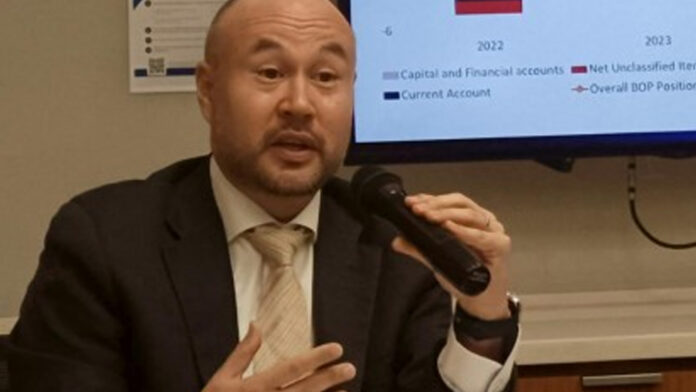Philippine economic growth is expected to increase by an average of 5.9 percent between 2024 and 2026, driven by the strong domestic demand and pickup in global growth, the World Bank said.
In its Philippines Economic Update report released on Tuesday, the World Bank retained its 2024 and 2025 Philippine economic growth projection at 5.8 percent and 5.9 percent from a 5.5 percent expansion in 2023.
For 2026, the World Bank also expects the Philippine economy to grow by 5.9 percent.
“For the Philippines, we project growth to average to about 5.9 percent between 2024 [and] 2026 supported by robust domestic demand, strong services growth, and improved trade,” World Bank senior economist Ralph Van Doorn said in a briefing in Taguig City.
Doorn said the forecast is based on the expectation that inflation will ease, which will help the Bangko Sentral ng Pilipinas to transition into a more accommodative policy stance and result in private investment demand.
“We expect inflation to remain within the 2 to 4 percent band which is the comfort zone of the BSP for the next few years,” said Doorn.
The World Bank projects headline inflation to settle at 3.6 percent this year and further decelerate to 3.2 percent in 2025 and 3.0 percent in 2026.
“We also expect that despite the ongoing fiscal consolidation, public investments will likely remain above 5 percent of the GDP (gross domestic product) and remains supportive of growth,” said Doorn.
Risks to growth
Doorn said the balance of risks are tilted to the downside.
On the external front, Doorn said an intensification of geopolitical tensions could lead to higher energy prices and disruptions in global trade and investment activity.
Fragmentation in global trade policy and an increase in trade protectionism could weigh on trade, while the prolonged downturn in the property sector could lead to the slower-than-expected growth in China which may cause negative spillovers in the region.
“Domestically, a prolonged episode of El Niño and stronger-than-expected La Niña phenomenon could lead to damages to farm output which could place upward pressure on food prices,” Doorn said.
He added that the threats of persistently high inflation could also lead to delays in monetary policy normalization which would dampen private domestic demand.
Policy recommendations
Moving forward, Doorn said managing inflation will require the continued use of non-monetary measures such as optimizing supply and demand management and securing the timely and adequate imports of stable food items.
The World Bank also urged the government to improve the efficient, transparency, and inclusive use of public resources in climate adaptation, mitigation, response, and rehabilitation.
According to World Bank, strengthening revenue mobilization is also essential for fiscal consolidation and to sustainably finance the country’s inclusive development agenda. (PNA)






